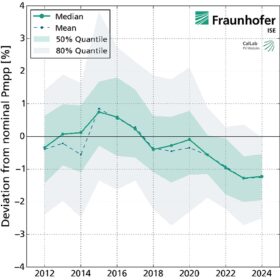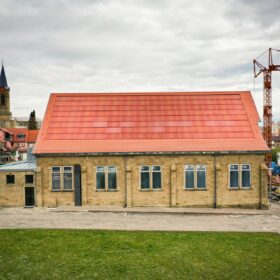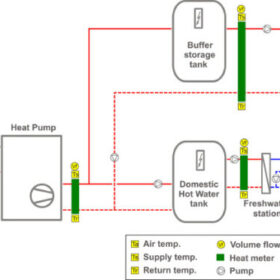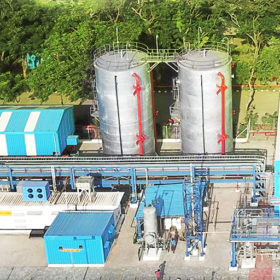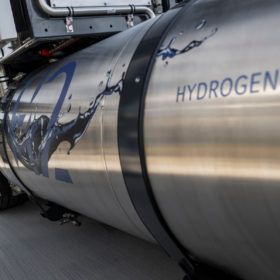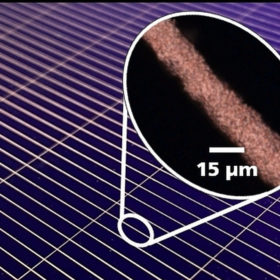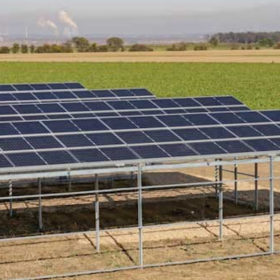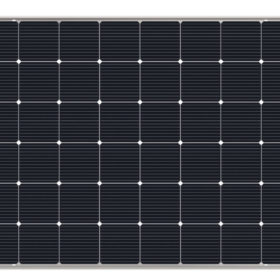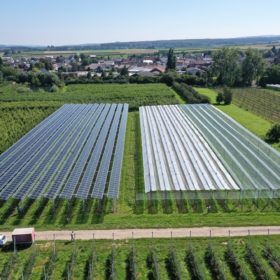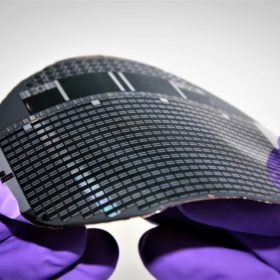Fraunhofer ISE research finds solar module output ‘often overstated’
A longitudinal research project from the Fraunhofer Institute for Solar Energy Systems ISE reveals that since 2017, the institute has measured less power on average in a solar module than promised by the manufacturer.
Colored modules for building-integrated photovoltaics
Taking inspiration from the 3D photonic structures on a Morpho butterfly’s shimmering blue wings, scientists at Germany’s Fraunhofer Institute for Solar Energy Systems ISE have developed colored solar panels that can be incorporated into a building’s exterior practically invisibly while maintaining high efficiency.
How to combine residential heat pumps with PV, battery storage
New research from Germany’s Fraunhofer Institute for Solar Energy Systems (Fraunhofer ISE) has shown that combining rooftop PV systems with battery storage and heat pumps can improve heat pump efficiency while reducing reliance on grid electricity.
L&T forms Green Energy Council
The council will identify technology trends in green energy, analyze the evolving global policy developments, evaluate emerging business models, and advise on collaborations.
Hydrogen to play limited role in building energy supply
How much hydrogen is actually needed? Several German research institutes have examined 40 energy scenarios for hydrogen ramp-up and found that 15 million GWh of hydrogen will be needed worldwide by 2050.
Bifacial TOPCon solar cell with 23.84% efficiency, 90% lower silver consumption
Developed by Germany’s Fraunhofer ISE, the cell is manufactured with metallization based on a plating process. The device was built with galvanic nickel/copper/silver contacts instead of common silver contacts.
New agrivoltaic system design from Germany
Germany’s Sunfarming is testing the new project design in cooperation with research centers Jülich and the Fraunhofer ISE.
TOPCon vs PERC
TOPCon solar cells are on their way to fully compete with PERC solar products, according to recent research from Germany’s Fraunhofer ISE. Efficiency gains for the TOPCon concept, however, are necessary to help it capture more market share, as production costs remain higher than those for PERC tech. A series of cost-driven strategies to make TOPCon modules advance were outlined in the study.
Agrivoltaics to protect crops from heavy rainfall
BayWa r.e. and the Fraunhofer Institute for Solar Energy Systems ISE have built a 258 kW agrivoltaic system that hosts apple cultivation under four different crop protection systems. The system utilizes agrivoltaic technology with permanent, light-permeable PV modules that block rain, and tracking PV module tech that blocks rain only if necessary.
Fraunhofer ISE unveils 68.9%-efficient III-V solar cell for laser energy transmission systems
The German research institute said the gallium arsenide cell has achieved the highest efficiency to date for the conversion of light into electricity.
